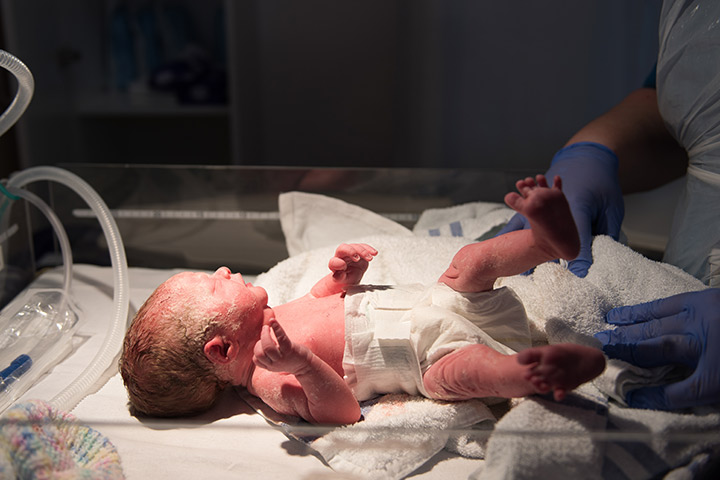
Image: Shutterstock
Babies are not always born on the due date given by the doctor. There are instances where they make an early visit. They can make their debut a few weeks or even a month early. Doctors typically calculate the due date of a pregnant woman from the day she got her last period. Since it’s hard to find the exact date when a woman conceives, an approximate date is calculated by adding 40 weeks from the first day of your last period (1). This rough calculation can then be improved after doing the first ultrasound. This age-old practice isn’t always accurate in predicting the exact date of your baby’s birth. But what if we had a test or a scan to know the exact due date and a way to know if the baby is going to be born preterm? That would make the job of doctors so much easier by taking extra care and ensuring that the baby’s life is not at risk. And, it goes without saying that it would be a relief for any pregnant woman.
With new research, scientists have come up with a blood test that will be able to predict the due date and preterm birth. What’s more? It’s cheaper than an ultrasound (2)!
What Are Preterm Births?
Babies who are born before you enter your 37th week of pregnancy are known as premature babies. If a baby is born prematurely, he/she might have several medical complications that put their life at risk. Based on how early you give birth, preterm births can be classified into late preterm, moderately preterm, very preterm, and extremely preterm. The early a baby is born, the more at risk he/she is (3).
Premature babies may be born with complications like a disproportionate head, respiratory problems, low body temperature, sharp features due to less fat, weak reflex, etc.
Let’s See What The Study Says..
A cohort study was conducted by the research team at Stanford University which included 31 Danish women. All women who were a part of the study had completed their gestational period. A statistical model was built by taking the blood samples from 21 among the group which was further validated by taking samples from the remaining 10. The team conducted another study which included 38 pregnant women who are at risk of preterm birth. They found that certain genes in the mother and maternal placenta could help predict premature births. To validate the findings, a larger study needs to be done before they can use this test worldwide (4).
The study, which was led by a team of scientists at Stanford University can help bring down the number of premature births which affects 15 billion babies every year. The research which was co-led by Stephen Quake, professor of applied physics and bioengineering at Stanford, says that the blood test accesses the cell-free RNA in the maternal blood and molecular messenger bits which contains the genetic info. These blood samples are then used to find out about the genes which gave reliable information about the gestational period and the risk of preterm birth. It was found that certain genes can predict which women are at greater risk of delivering premature babies. The team of scientists at Stanford University also closely worked with the Stanford March Of Dimes Prematurity Center, according to Quake. He further stated that they had also collaborated with scientists from Alabama, Denmark, and Pennsylvania for the research.
Complications of being born prematurely can be avoided if this blood test could be used extensively in the near future. We hope that more research will be done on a large scale to further validate the findings of this research.














